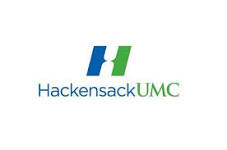A Dose-finding Study of CC-90009 in Subjects With Relapsed or Refractory Acute Myeloid Leukemia or Relapsed or Refractory Higher-risk Myelodysplastic Syndromes
| Status: | Recruiting |
|---|---|
| Conditions: | Blood Cancer, Blood Cancer, Hematology |
| Therapuetic Areas: | Hematology, Oncology |
| Healthy: | No |
| Age Range: | 18 - Any |
| Updated: | 7/15/2018 |
| Start Date: | November 14, 2016 |
| End Date: | June 21, 2021 |
| Contact: | Associate Director Clinical Trial Disclosure |
| Email: | clinicaltrialdisclosure@celgene.com |
| Phone: | 1-888-260-1599 |
A Phase 1, Open-label, Dose-Finding Study of CC-90009, a Novel Cereblon E3 Ligase Modulating Drug, in Subjects With Relapsed or Refractory Acute Myeloid Leukemia or Relapsed or Refractory Higher-Risk Myelodysplastic Syndromes
CC-90009-AML-001 is a phase 1, open-label, dose escalation and expansion, study in subjects
with relapsed or refractory acute myeloid leukemia and relapsed or refractory high-risk
myelodysplastic syndrome.
with relapsed or refractory acute myeloid leukemia and relapsed or refractory high-risk
myelodysplastic syndrome.
Study CC-90009-AML-001 is an open-label, Phase 1, dose escalation and expansion,
first-in-human clinical study of CC-90009 in subjects with relapsed or refractory acute
myeloid leukemia (AML) and relapsed or refractory high-risk myelodysplastic syndrome.
The dose escalation part (Part A) of the study will evaluate the safety and tolerability of
escalating doses of CC-90009 in relapsed and refractory AML. The expansion part, (Part B),
will further evaluate the safety and efficacy of CC-90009 administered at or below the
maximum tolerated dose (MTD) in selected expansion cohorts of one or more dosing regimens in
order to determine the recommended Phase 2 dose (RP2D) for subjects with relapsed or
refractory AML and relapsed or refractory high-risk myelodysplastic syndrome.
first-in-human clinical study of CC-90009 in subjects with relapsed or refractory acute
myeloid leukemia (AML) and relapsed or refractory high-risk myelodysplastic syndrome.
The dose escalation part (Part A) of the study will evaluate the safety and tolerability of
escalating doses of CC-90009 in relapsed and refractory AML. The expansion part, (Part B),
will further evaluate the safety and efficacy of CC-90009 administered at or below the
maximum tolerated dose (MTD) in selected expansion cohorts of one or more dosing regimens in
order to determine the recommended Phase 2 dose (RP2D) for subjects with relapsed or
refractory AML and relapsed or refractory high-risk myelodysplastic syndrome.
Inclusion Criteria:
1. Men and women ≥ 18 years of age, at the time of signing the ICD (Informed Consent
Document).
2. Subject must understand and voluntarily sign an ICD prior to any study-related
assessments/procedures being conducted.
3. Relapsed or refractory AML (Acute Myeloid Leukemia) (Parts A and B) or relapsed or
refractory high-risk MDS (Myelodysplastic Syndrome) (Part B only) as defined by World
Health Organization criteria who are not suitable for other established therapies.
4. Eastern Cooperative Oncology Group Performance Status (ECOG PS) of 0 to 2.
5. At least 4 weeks (from first dose) has elapsed from donor lymphocyte infusion (DLI)
without conditioning.
6. Subjects must have the following screening laboratory values:
- Total White Blood Cell count (WBC) < 25 x 109/L prior to first infusion. Prior or
concurrent treatment with hydroxyurea to achieve this level is allowed.
- Selected electrolytes within normal limits or correctable with supplements.
- Serum bilirubin ≤ 1.5 x ULN (upper limit of normal).
- Estimated serum creatinine clearance of ≥ 60 mL/min using the Cockcroft-Gault
equation.
7. Agree to follow the CC-90009 Pregnancy Prevention Plan (PPP)
Exclusion Criteria:
1. Subjects with acute promyelocytic leukemia (APL)
2. Subjects with clinical symptoms suggesting active central nervous system (CNS)
leukemia or known CNS leukemia. Evaluation of cerebrospinal fluid is only required if
there is clinical suspicion of CNS involvement by leukemia during screening.
3. Patients with prior autologous hematopoietic stem cell transplant who, in the
investigator's judgment, have not fully recovered from the effects of the last
transplant (e.g., transplant related side effects).
4. Prior allogeneic hematopoietic stem cell transplant (HSCT) with either standard or
reduced intensity conditioning ≤ 6 months prior to starting CC-90009.
5. Subjects on systemic immunosuppressive therapy post HSCT at the time of screening, or
with clinically significant graft-versus-host disease (GVHD). The use of topical
steroids for ongoing skin or ocular GVHD is permitted.
6. Prior systemic cancer-directed treatments or investigational modalities ≤ 5 half lives
or 4 weeks prior to starting CC-90009, whichever is shorter. Hydroxyurea is allowed to
control peripheral leukemia blasts.
7. Leukapheresis ≤ 2 weeks prior to starting CC-90009.
We found this trial at
8
sites
Click here to add this to my saved trials
Dana-Farber Cancer Institute Since it’s founding in 1947, Dana-Farber has been committed to providing adults...
Click here to add this to my saved trials
Click here to add this to my saved trials
Click here to add this to my saved trials
Hackensack University Medical Center Hackensack University Medical Center, part of the Hackensack University Health Network,...
Click here to add this to my saved trials
Yale Cancer Center Yale Cancer Center combines a tradition of innovative cancer treatment and quality...
Click here to add this to my saved trials
Memorial Sloan Kettering Cancer Center Memorial Sloan Kettering Cancer Center — the world's oldest and...
Click here to add this to my saved trials
Click here to add this to my saved trials



